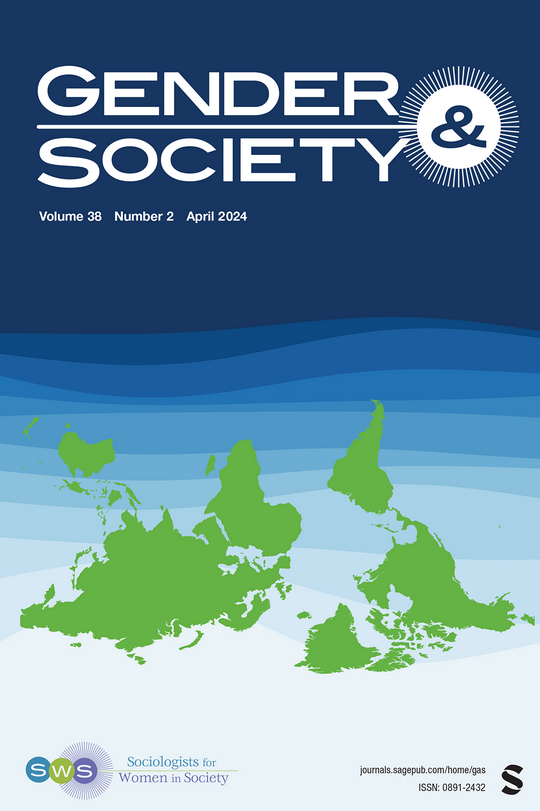Walking the Orientalism Tightrope: How Muslim Americans Construct their Gender Ideologies
IF 7.2
1区 社会学
Q1 SOCIOLOGY
引用次数: 0
Abstract
Political and popular tropes portray Muslims as monolithically, uniquely, and inherently patriarchal and misogynistic—a phenomenon of which Muslims are acutely aware. This study asks whether and how Islamophobic tropes influence Muslims’ gender ideologies. Using life history interviews with Muslim Americans, we find a diversity of gender beliefs, challenging the discourses that frame Muslims’ gender ideologies as monolithic. Four major typologies emerge in our data: Loyalist Complementarians, Patriarchal Reactionaries, Critical Egalitarians, and Reformist Egalitarians. These beliefs are multifaceted and are composed of a dialogic exchange between beliefs toward gender relations, perceptions of Islamic doctrine, and negotiation with what we call the Orientalist gaze. Each group navigates how their ideas about gender fit into or challenge a broader society that is scrutinizing Muslims, and each group articulates their gender beliefs through and against Islamophobic discourse, a process akin to walking an Orientalism tightrope.走在东方主义的钢丝上:美国穆斯林如何构建其性别意识形态
政治和流行的陈词滥调将穆斯林描绘成铁板一块、独一无二、与生俱来的重男轻女主义者--穆斯林对这一现象有着深刻的认识。本研究探讨了仇视伊斯兰教的传统是否以及如何影响穆斯林的性别意识形态。通过对美国穆斯林的生活史访谈,我们发现了性别信仰的多样性,这对将穆斯林的性别意识形态定格为一成不变的论述提出了挑战。我们的数据中出现了四大类型:忠诚互补主义者、宗法反动主义者、批判平等主义者和改革平等主义者。这些信仰是多方面的,由对性别关系的信仰、对伊斯兰教义的看法以及与我们所说的东方主义目光之间的对话交流组成。每个群体都在探索他们的性别观念如何融入或挑战一个审视穆斯林的更广泛的社会,每个群体都通过并反对仇视伊斯兰教的言论来阐述他们的性别观念,这个过程就像走东方主义的钢丝绳。
本文章由计算机程序翻译,如有差异,请以英文原文为准。
求助全文
约1分钟内获得全文
求助全文
来源期刊

Gender & Society
Multiple-
CiteScore
9.70
自引率
3.60%
发文量
78
期刊介绍:
Gender & Society promotes feminist scholarship and the social scientific study of gender. Gender & Society publishes theoretically engaged and methodologically rigorous articles that make original contributions to gender theory. The journal takes a multidisciplinary, intersectional, and global approach to gender analyses.
 求助内容:
求助内容: 应助结果提醒方式:
应助结果提醒方式:


